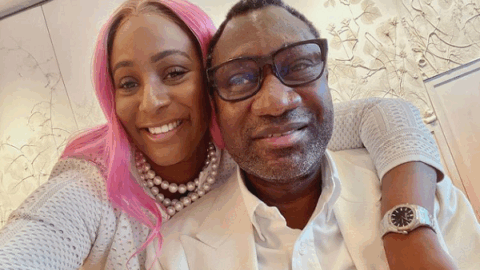Nollywood actress Mary Njoku has sparked a heated debate by questioning the relevance of the Joint Admissions and Matriculation Board (JAMB) in Nigeria’s higher education system.
Taking to her Instagram story, the actress wondered why candidates must take the JAMB examination to gain admission into universities when they have already completed the Senior School Certificate Examination (SSCE).
Her comments have since sparked discussions among students, parents, and educators about the necessity of the exam. “Why is it necessary to take the JAMB exam to gain admission into universities? Isn’t the SSCE sufficient?” Mary Njoku asked bluntly.
For her, the SSCE should be enough proof that a student has completed secondary school and is eligible for higher education.
She further questioned the logic behind making candidates take not just JAMB but also post-UTME, another screening exam set by individual universities.
“I don’t understand the need for JAMB + post-JAMB when the SSCE already shows we’ve completed secondary school,” she added, capturing the frustration of many young Nigerians who struggle with the stressful process of securing university admission.
Her remarks come at a time when JAMB is under fire over the mass failure of candidates who sat for the 2025 Unified Tertiary Matriculation Examinations (UTME).
Following widespread complaints from candidates, the examination body admitted that errors were discovered in the results of some candidates.
This revelation further fueled the debate, with many critics echoing Mary Njoku’s sentiments that JAMB is an unnecessary barrier for students seeking higher education.
Responding to the controversy, JAMB’s Registrar, Is-haq Oloyede, acknowledged the errors in the 2025 UTME results and apologized to the affected candidates.
“We have identified errors in the results of some candidates. As a result, all candidates affected in 157 out of 882 centers will be contacted to retake their examinations starting Friday, 16 May,” Oloyede announced.
This decision affects a total of 379,997 candidates across the 157 centers in Lagos and the South-East, who will now have to undergo the stressful process again.
The situation has left many wondering why a supposedly standardized exam like JAMB is prone to such errors.
Mary Njoku’s criticism of JAMB has opened up a broader conversation about Nigeria’s higher education admission process.
For many, her argument highlights a deeper problem within the education system — one that relies heavily on multiple exams rather than focusing on the quality of secondary education itself.
As the debate continues, students, parents, and educators alike are left questioning whether JAMB is a true measure of academic potential or just another hurdle in the path of young Nigerians seeking higher education.







